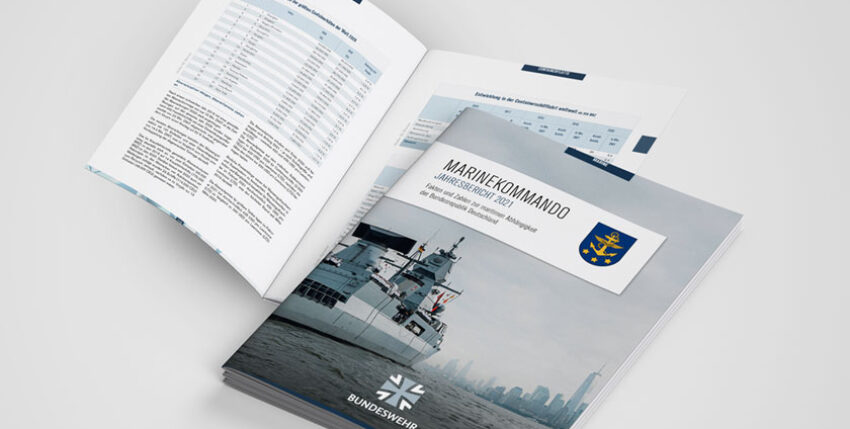It has become a good custom for the German Navy to present its annual maritime report at the Maritime Convention, the joint event of the DMI and griephan, We had the opportunity to browse through the latest report in the wing chair over a pot of Lumumba (hot or cold cocoa with a shot of rum, with whipped cream if you like) and would like to present a few selected topics of interest here in a short series:
The conclusion of negotiations on the Regional Comprehensive Economic Partnership (RCEP) free trade agreement on 15 November 2020 has been widely praised as an important step in the development of the international trading system. The fact that the largest free trade area the world has ever seen is being created at this time means that protectionism is no longer the only option for trade policy in the third decade of the 21st century. However, even if RCEP reduces the administrative complexity of trade agreements in the region, it does not represent a major breakthrough towards a liberal economic area. RCEP is a relatively weak trade agreement. It does not have the potential to turn the Asia-Pacific region into a monolithic bloc in international trade policy. Moreover, it does not contribute to overcoming the growing political tensions in the Indo-Pacific region.
RCEP was initiated by the ASEAN states and includes their ten members (Brunei, Indonesia, Cambodia, Laos, Malaysia, Myanmar, the Philippines, Singapore, Thailand, Vietnam) as well as the People's Republic of China, Japan, South Korea, Australia and New Zealand. Since 2012, these countries have been negotiating the terms of a regional free trade agreement. One of the main motives for the ASEAN states was to create a counterweight to the Trans-Pacific Partnership (TPP). Following the withdrawal of the US from this agreement in 2017, the subsequent realisation of a smaller, somewhat less ambitious project (Comprehensive and Progressive Agreement for Trans-Pacific Partnership, CPTPP) was not a full-fledged replacement for RCEP, as major ASEAN members, particularly Indonesia and Thailand, did not participate in CPTPP. However, RCEP does not significantly change trade relations between ASEAN and the People's Republic of China, as trade between these eleven economies has been conducted on the basis of a free trade agreement since 2010. However, this is based on a proposal by the then Chinese Prime Minister Zhu Rongji and not ASEAN. [...]
The importance of RCEP would be greater if India had signed the agreement. However, India has been struggling with its role in the global economy for years. On the one hand, the country's companies are also very active beyond its borders, and not only in the service sector. Significant shares in the British automotive industry (Jaguar, Land Rover) are now owned by the Indian company Tata. On the other hand, Indian governments have repeatedly acted as a brake on the further development of regulations for international trade. From the beginning of the WTO Doha Round negotiations in 2001, New Delhi pushed for the implementation of the demands of developing and newly industrialising countries. The sometimes excessive demands of this group contributed significantly to the failure of the Doha Round. The expectation that Narendra Modi's government, which has been in office since 2014, would be bold enough to significantly liberalise India's trade policy has not been confirmed. India remains in a position of globalisation scepticism and - just like China in the new five-year plan - is focusing primarily on domestic economic development.
Significance for the EU & the German economy
RCEP is relevant for Europe, but is overrated in some respects. Compared to EU agreements, trade liberalisation lags far behind. According to calculations by The Economist, around five-sixths of intra-regional trade has so far taken place between partners in bilateral free trade agreements (FTAs), meaning that the overall reduction in tariffs is low. Only Japan, South Korea and China are dismantling customs barriers to any significant extent, but with transition periods of up to two decades. In trade in services, too, apart from selective new openings, it is mainly a question of consolidating what already exists. However, the standardisation of the many overlapping bilateral FTAs in the region and, above all, the simplification of rules of origin, which are also quite liberal towards third countries, are very relevant from an economic perspective. This step reduces trade bureaucracy, especially for SMEs, and should further strengthen cross-border value chains in the region.
The RCEP region is important for Germany. It accounts for around 13.0 % of goods exports and 17.3 % of goods imports in 2019, although China dominates. However, the other RCEP members account for 5.8 % of exports and 7.3 % of imports. RCEP has only a minor economic impact on Europe due to limited liberalisation. A model estimate (Petri/Plummer, 2020) assumes marginally positive plus 0.06 % of GDP in 2030. Moderate negative diversion effects at the expense of Europe (especially in China) are offset by the positive effects of greater growth in the RCEP region. The role of China is overrated. RCEP did not come about under the leadership of Beijing, but of the ASEAN states. In addition, China has not enforced its standards, as RCEP also achieves little here. China is involved because of its economic strength. However, it had to agree to tariff reductions vis-à-vis Japan and South Korea, which it had long shied away from. This was worth it for the Chinese leadership, as RCEP enables strategic self-marketing. In this way, China presents itself as a liberaliser and opponent of protectionism (of the USA) and can point out that the USA is not involved - and neither is its other rival India. In addition to this geopolitically relevant success, China will invest more in the region (also as part of the Belt and Road Initiative) and further expand its importance in the regional value chains. It is increasingly using some ASEAN countries such as Vietnam as an export platform, presumably also to circumvent trade barriers from the EU and the USA.
[...] An agreement with ASEAN did not materialise, primarily due to the EU's high environmental and human rights standards. In the future, the EU must focus even more on the Indo-Pacific region. Joining RCEP does not seem advisable, as the standards are too low and the EU would also have to dismantle trade barriers with China. Instead, the EU should consider joining a jointly developed CPTTP with the USA and the UK. This would make it possible to set market-based and value-based standards for fair trade. The agreement could thus be a pioneer for new WTO rules and would be open to China, but only if Beijing accepts these standards.








